Hi Sepp, it’s great to be meeting up with you to start the day. Shall we dive straight in with a short introduction to where we were in 2018/19, with regard to our first direct relationships with producers?

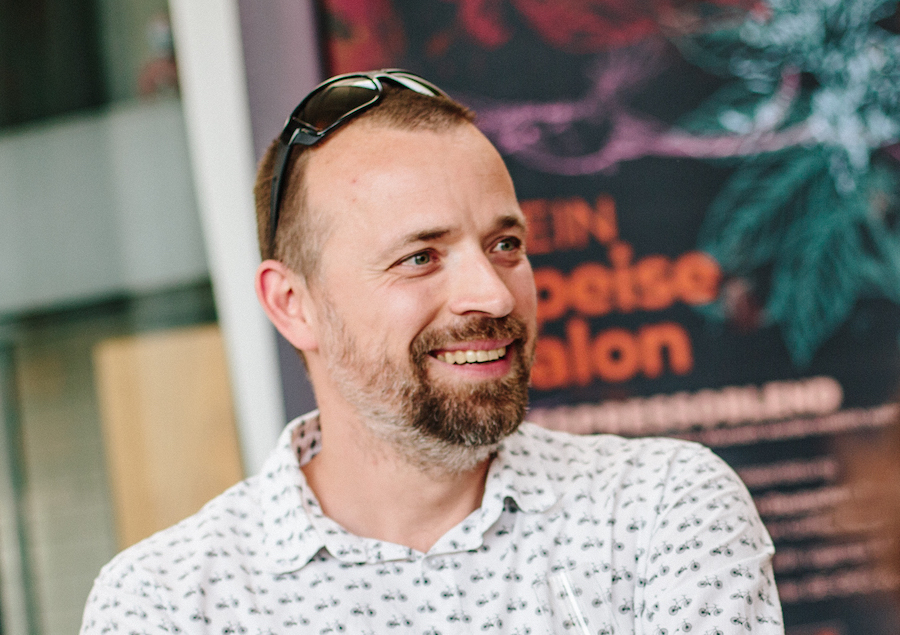


Sure … At that time, we were mainly building relationships with regional producers, because we already felt we had to start changing things; for us and – with the influence we have – for the entire value-creation chain in the region. It was a question of finding the best regional seasonal products and somehow getting hold of them. Which meant even then that we had to connect very closely with the producers to get the quantities we need for our size. The best example is the Margaretenhof Farm in Andernach, with its Charolais cattle. Relationships like that only work via long-term planning. Together with our longstanding partner Bernhard Möllers GmbH & Co. KG and the breeder Sarah Doetsch, we basically have to plan a year ahead so the cows can be reared for us. Working with Sarah was actually a pioneering project, where we pledged to take ten to twelve cows over a year, which are fully processed and now make up a fixed element of our menus. From the kitchen trainee to the project management team – everyone in our team knows the Charolais cows from the Margarethenhof Farm. The collaboration creates planning security for the farm and of course for us too, knowing we can use the product across the whole year. Another step back then was joining the Bauernrunde project. Based in Cologne, it enabled direct trading between selected gastronomies and regional farmers. And that’s how we actually worked out how difficult it can be for us as caterers to source regional and seasonal vegetables.
What “glass ceilings” did we come up against?
The constant availability of ingredients in the conventional food industry – that’s what we restaurateurs and caterers have become completely accustomed to; what all gastronomy systems actually rely on. That you can practically call up your wholesaler at two in the morning, put in a quick order and everything you need will be there the next day. In event catering, we sometimes sell a food concept a year in advance. And then of course there are spontaneous events that get booked. It requires perfect planning, but also a certain level of flexibility in your purchasing. Even the delivery days can be a stumbling block as to whether we can use a product or not. If a delivery from the field can only take place on Fridays, for instance, it’ll miss our production on Thursday evening for events on the Friday and Saturday. Another important point: the high-quality, super-fresh veg from the farmers obviously gets here entirely unprocessed. In catering, that means extra work has to be planned in to get all the veg into the form we need it in. And if you don’t want to use convenience and frozen products, you have to go to pre-chopped veg. In other words, the freshly prepped veg really gets here in boxes on pallets and is then immediately processed.
Which is actually the key difference to restaurants or smaller caterers.
Exactly, yes. So we’re not talking about one box of parsnips that need peeling, we’re talking twenty boxes, and to do that you actually need someone on top in the team to pre-prep the veg. The aim, by the way, is for us to create a place in-house where we can do that prepping mechanically – operation “peeling-machine test phase”.
And would you say that further contacts have grown naturally out of a) this increasing interest in the growers’ and producers’ work and b) the key realisation that these partnerships only benefit our product?

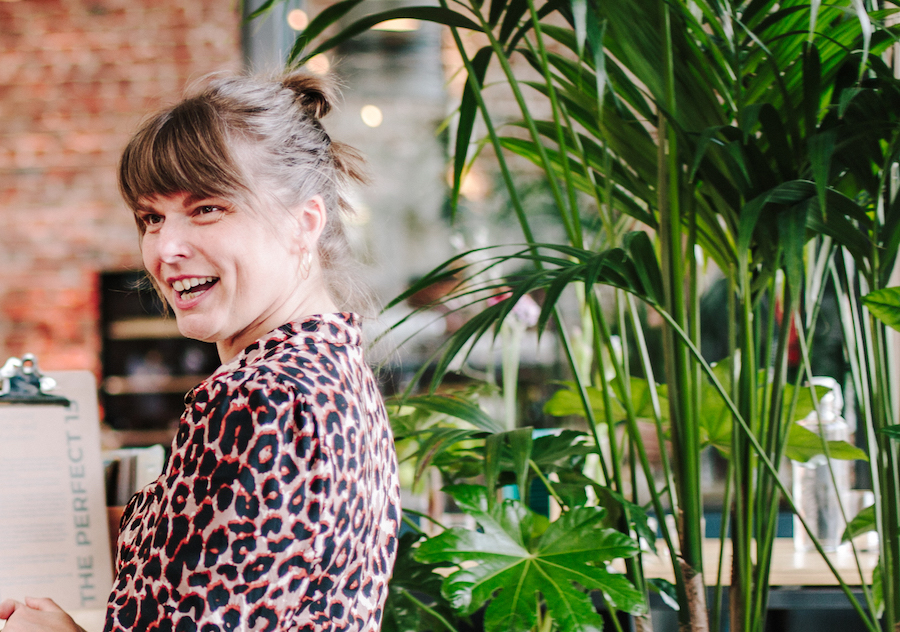


Absolutely. Let’s take Slow Food – the global movement working towards a socially and ecologically responsible food system. We’ve supported the philosophy since 2019. Out of our conversations with Sven Johannsen from Slow Food Cologne, we then fairly quickly connected up with Regionalwert AG Rheinland, which held their organic gastro trade fair with us in 2019. At the time, we didn’t yet think we’d one day be working more closely with Regionalwert AG.
Let’s come back to that in a moment. But before that: how did you realise that “regional/seasonal” wasn’t enough, that organic had to be our next level?

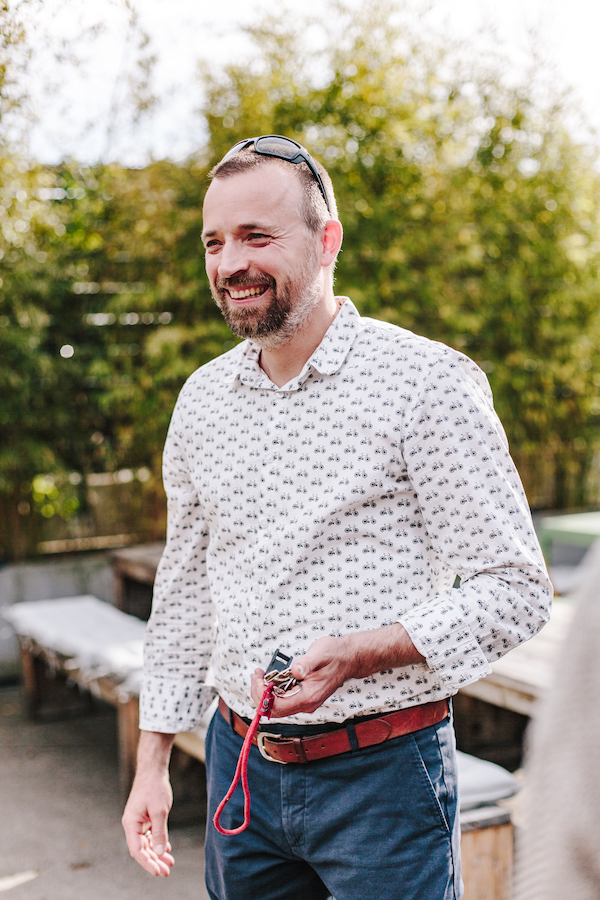


Jutta and I talked about it a lot. We both eat organic food at home, almost without thinking about it, and yet that step wasn’t happening in the company. I think as we looked at our supply chains and also at the accelerating climate crisis, we realised at some point that there’s really no alternative – that has to be the consistent way. In the value-creation chain, we’re only one step away from the end consumers. That means that as a processing business, we have the entire influence on the rest of the chain – and that brings huge responsibility, which we ought to shoulder. Starting with the production conditions like not using pesticides, to logistics and so on – we can raise our demands everywhere, and insist that they’re met. Everything we do for sustainability becomes obsolete and pointless if we don’t get to the core of the problem. To the point where we’re actually causing the most damage: in the production of our food. You can never “plant” enough forests to compensate for that. And that’s actually the driving force behind us going for organic certification.
And it’s obvious that the automatic result is ten-times-better products. No matter if it’s veg, milk or yogurt. Everything is much more intense: flavour, colour, consistency – everything’s just better because it’s been treated much better on the way from the farm to us. Because the people making the products really love them.
The perfect moment to come back to Regionalwert AG Rheinland – we’ve got another piece a few pages along by their chairwoman Dorle Gothe – and our close contacts to Haus Bollheim and Schloss Türnich.
Yes, we’re very proud to be sourcing an amazing selection of fruit, salads and veg directly from Haus Bollheim – a Regionalwert AG Rheinland partner company. Haus Bollheim in Zülpich has been farming biodynamically since the 1980s, and the farm has become a real lighthouse project since then. Their dairy also provides us with really great speciality cheeses – and the spectacular thing is that Mühlenbäckerei Bollheim now delivers our wholemeal wheat, rye and spelt flour. We’ve reached the point where we’re developing and baking our own bread.
That’s a very rare step in event catering, right!?
In the quantities we need for events, you can’t get good organic bread – not the quality we want. Sure, if you want to buy baguettes and bread as a caterer, everything’s available – from croissants to pastries and cake – 24 hours around the clock. But that’s not possible with organic. It makes perfect sense to say: let’s move away from that huge range and switch to really good bread, baked in-house with top Demeter flour. So we bake it ourselves and then distribute it across all the week’s events. It takes time to build the structures so that all the processes fit together: when do we bake? Where do we store the bread? Where can the dough rise? They’re all processes we’ve started on. At the moment we’re extending our cooling capacities so we have space to do it right.
So it’s a limitation of the huge choice of products, but that leads to us reaching new culinary levels?
That’s exactly our focus. And I’m grateful for that – clarity. If we abandon fear of that limitation, we get greater rewards.
Why is it important to undertake the transformation to organic ingredients in one area at a time?
First of all, you have to recognise that we’re closely intertwined with the traditional food-production system, as a result of the past 15 years. All the structures are based on constant availability. So now we have to look at every product separately because the organic sector can’t guarantee that permanent availability. That requires much more forward-planning, so we have to take one product group at a time and transform them step by step. Also so that we don’t endanger our processes – the production has to keep running smoothly, we have to let our staff get used to the changes. There are various products that can be processed very differently, for instance, and that calls for a fair amount of learning.
Which is what led to our 3-year plan.
Right. One of our best chefs is taking care of purchasing, the separate transformation steps, product selection and sourcing.
And what do you think – how did the moment come about when we decided: “OK, let’s work with the Demeter-SoLaWi at Schloss Türnich in 2023 and even go out in the fields ourselves”?
I have to admit that the Speisesalon and Jutta always wanted to take that step. Raised beds were built around the building from the very beginning. Vegetables and herbs were planted and our chefs have been essentially harvesting all their blossoms and basic herbs like thyme, rosemary, sage and lovage from our own garden for the past 10 years.
Lovage … a very important herb.

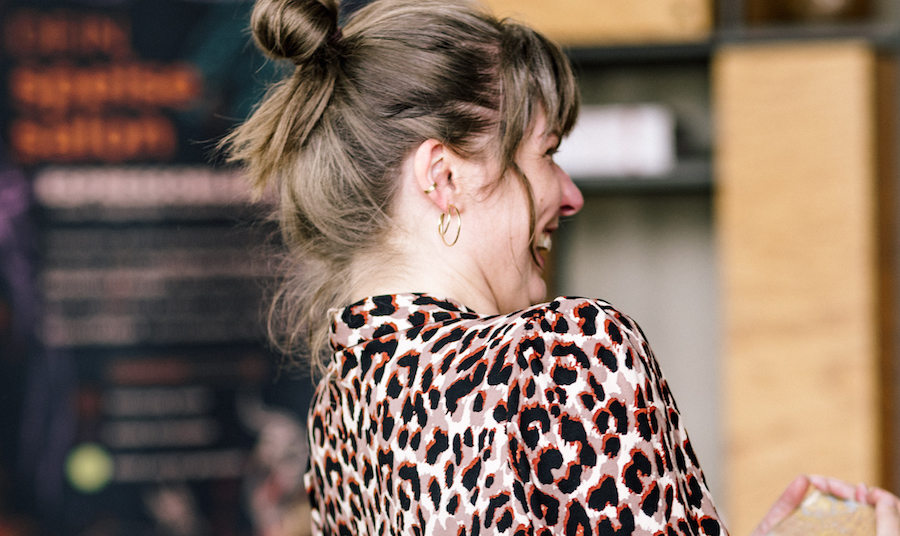


It’s so important that people have tattoos of it. And that fascination for places and restaurants that run their own greenhouses, that’s been there from the beginning as well. We went on a hugely inspiring team trip to the Michelberger Farm in Brandenburg in 2022. Seeing how the network between a Berlin restaurant and hotel with their own farm and agroforest worked – that was really motivating.
And the view from the kitchen: where do you see the benefit of growing our own?
First of all: the possibility of growing things we can’t get anywhere else, like heirloom varieties – in other words: a certain exclusivity. The very special ingredients, as we can see here in the magazine in our best-practice menu. And also ... that we can all spend time harvesting and feel for ourselves where our ingredients come from – I know that’s going to be great.
When you and Sam developed the menu for the photo shooting – what was the vibe like?

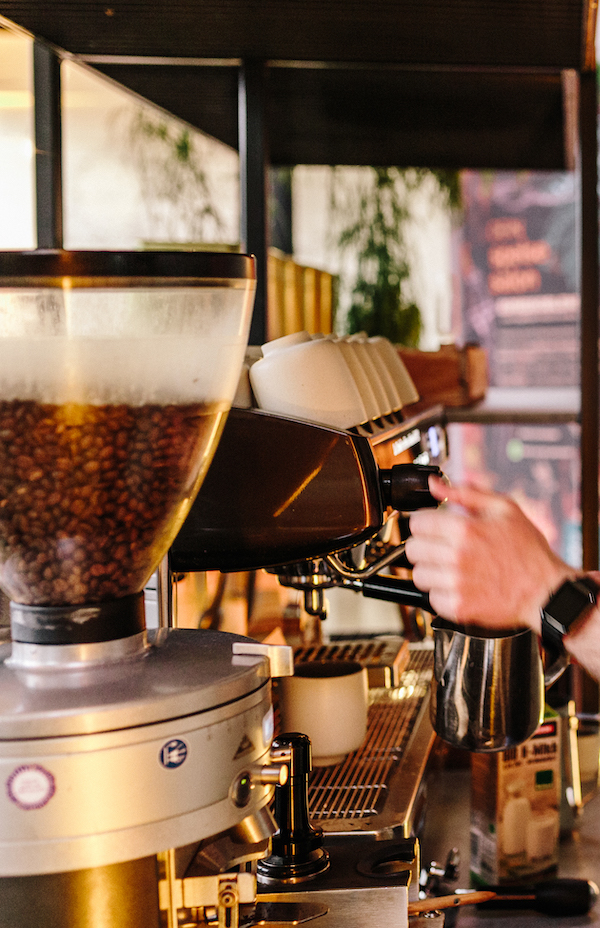


It definitely felt like a new departure. It was the feeling of ushering in a new era with this menu, a new commitment. Like a signature or a stamp … quite literally “signature dishes”. Not forgoing anything, but instead a huge opportunity for creativity.
But we’re certainly stepping out of our comfort zone.
Oh, absolutely. We have to explain really well to our clients why we need the new concepts, but at the same time trigger their appetites as they read about the dishes. We also want to raise awareness that not every course on a menu needs a meat or fish component. Working with the urban gourmet mushroom farm Pilzling here in Cologne is obviously a game-changer. Mushrooms like lion’s mane, shiitake and king oysters really do work as a culinary meat substitute. And where we do use meat, then only from premium-standard husbandry and/or organic. On that subject, I’d recommend taking a look at our 3-year plan.
Decisions that must influence the food costs and the final price.
Definitely, but food costs aren’t everything! Before we put our money into some dubious forest project as CO2 compensation or choose one of 1000 other greenwashing methods, this is the only plausible and direct way to effect change and prepare our company for the future. Spending €2 more on food costs – that’s money well invested; that’s part of our corporate DNA, how we use our money and what we want to achieve through it. We’re spending more because it’s worth it to us.
